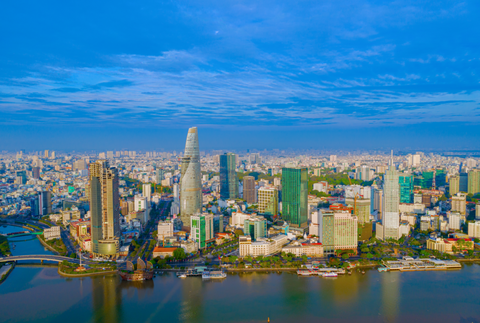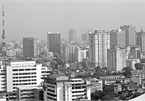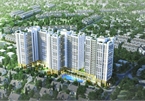In this year’s biennial GRETI, Viet Nam is ranked in 56th position.
 |
|
|
Viet Nam’s ranking continues to rise in the list of transparent property markets, making luxury projects more attractive to foreign investors.
JLL and LaSalle have been tracking real estate transparency and championing higher standards since 1999. The 11th edition of GRETI covers 99 countries and territories, and 163 city regions. The latest survey has been extended to quantify 210 separate elements of transparency, and has additional coverage of sustainability and resilience, health and wellness, proptech and alternatives sectors.
Stephen Wyatt, country head of JLL Vietnam, said: “It is no surprise that Viet Nam has moved from ‘Non-transparent’ to ‘Semi-transparent” in our latest transparency index. Over the past 10 years, Viet Nam has become a top destination for manufacturing in Southeast Asia and attracted significant foreign investment. Viet Nam will need to continue rising up the rankings if it wants to attract more foreign investment.”
HCM City and Hanoi’s growth help pushing “transparent” ranking of Vietnam in foreigner investor minds
JLL said the 2020 Index has been launched at a time of massive economic and societal disruption where the need for transparent processes, accurate and timely data and high ethical standards are in closer focus.
The backdrop of COVID-19 is also ensuring that transparency within Asia Pacific’s real estate legal and regulatory systems is more important than ever to global investors, as they look to deploy approximately US$40 billion in dry powder capital into the region.
In its previous report JLL said Viet Nam, and Southeast Asia in general, have become attractive destinations for foreign investors who want to move out of China.
Besides, many multinational companies have expanded their business in Viet Nam.
The report said in 2019 the US’s imports from Viet Nam increased by 35.6 per cent but purchases from China decreased by 16.2 per cent.
Chance for luxury real-estate projects
Not only the industrial property market but also the luxury property market has benefited from the shift by companies from China.
A CBRE Vietnam report said the prices of high-end and luxury apartmentsin HCM City have risen by 10-13 per cent in the last three years.
The prices of luxury apartmentsin the central areas jumped by 40 per cent between 2017 and the end of the third quarter of 2019.
Luxury apartmentsin central areas and near the metro have attracted buyers from Singapore, Japan and South Korea. About 50 per cent of investors buying these apartmentsin the secondary market are foreigners, indicating that many foreigners want to settle down in Viet Nam.
The open-market policies to attract foreign investors and the rising incomes in the country are the main reasons for Viet Nam becoming one among the most dynamic emerging countries and one among economies that have highest GDP growth.
Thanks to this, many foreign investors have been flocking to the Vietnamese property market.
Furthermore, property-related taxes are lower in Viet Nam than in other countries.
In HCM City, the price of an apartmentin the central areas is US$5,500-6,500 per square metre, much lower than in Hong Kong and other cities like Kuala Lumpur and Bangkok.
But the appreciation in prices is much higher.
It is difficult for investors to buy apartmentsin the central areas of the city due to the lack of developments. The city Department of Construction has restricted licences for high buildings here.
One of very few luxury apartment projects being developed in the heart of HCM City, District 1, is The Grand Manhattan by Novaland. This flagship project of Novaland is a complex of three 39-storey apartment buildingds, being built on an area of 14,000 square metres at the intersection of Co Giang and Co Bac streets. It has attracted many foreign buyers thanks to the steady profits it fetches buyers.What makes the project attractive is the free private parking lot that is offered to buyers buying apartmentshere. Free private parking space is a special offer since it is hard to buy any in the central area of a gigantic city even if one is willing to pay a lot of money.
Experts expect more developers and buyers to flock to the Vietnamese property and housing market also since the country has managed the COVID-19 pandemic very well. VNS

Domestic property market faces uncertainty
The domestic real estate market is hoped to have growth in the fourth quarter of this year and before the Lunar New Year 2021 if, by this year-end, the domestic economy is restored to levels from before the COVID-19 pandemic.

Property firms return to market after COVID-19
After a brief hiatus, property companies have been resuming sales of developments and revealing their post-COVID-19 business plans since the beginning of May.